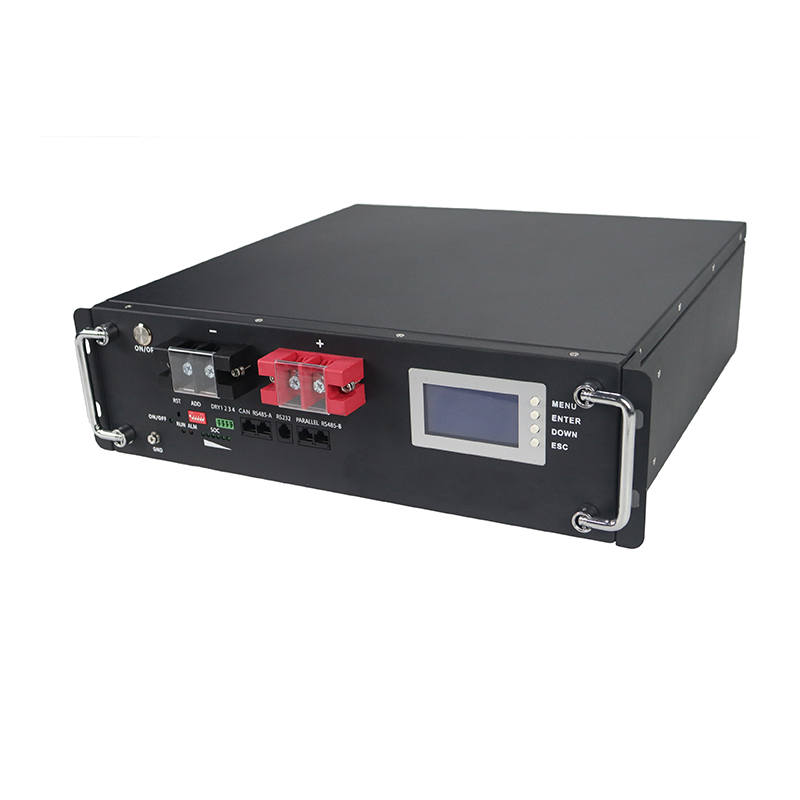The Ultimate Guide to Forklift Battery Types and Their Benefits
2025-09-27

The Ultimate Guide to Forklift Battery Types and Their Benefits
In the fast-paced realm of logistics and warehousing, the efficiency of your equipment can significantly impact productivity and operational costs. One of the key components of your forklift’s performance is its battery. With various types of forklift batteries available, understanding their unique benefits is crucial for making informed decisions. In this guide, we will delve into the different forklift battery types, their advantages, and factors to consider when choosing the right battery for your operations.
Table of Contents
- Understanding Forklift Batteries
- Types of Forklift Batteries
- Advantages of Various Battery Types
- Choosing the Right Battery for Your Forklift
- Maintenance and Care for Forklift Batteries
- Common Misconceptions About Forklift Batteries
- Frequently Asked Questions
- Conclusion
Understanding Forklift Batteries
Forklift batteries are essential components that power electric forklifts. They provide the necessary energy to lift, move, and transport materials within warehouses and industrial settings. Understanding how these batteries work and their characteristics can help you make better choices regarding battery selection and maintenance.
Electric forklifts are increasingly popular due to their lower operating costs and reduced emissions compared to internal combustion engine forklifts. The choice of battery significantly influences the forklift's performance, charging time, and overall efficiency.
Types of Forklift Batteries
When it comes to forklift batteries, there are three primary types to consider: lead-acid, lithium-ion, and nickel-cadmium. Each type has its own set of advantages and drawbacks, making it essential to evaluate them based on your specific operational requirements.
Lead-Acid Batteries
Lead-acid batteries have long been the standard choice for electric forklifts. They are reliable, widely available, and relatively inexpensive. These batteries consist of lead plates and sulfuric acid, which generate electricity through a chemical reaction.
Advantages of Lead-Acid Batteries:
- Cost-Effective: Lead-acid batteries are typically less expensive than their lithium-ion counterparts, making them a budget-friendly option for many businesses.
- Established Technology: With decades of use, lead-acid batteries are a proven technology, and many service providers are familiar with their maintenance and repair.
- Multiple Sizes and Configurations: These batteries can be customized in various sizes and configurations to fit different forklift models and applications.
Lithium-Ion Batteries
Lithium-ion batteries are gaining popularity in the forklift industry due to their advanced technology and performance capabilities. Unlike lead-acid batteries, lithium-ion batteries do not contain lead or acid, making them lighter and more efficient.
Advantages of Lithium-Ion Batteries:
- Higher Energy Density: Lithium-ion batteries offer a higher energy density, which allows for longer run times and reduced charging cycles.
- Faster Charging: These batteries can be charged much faster than lead-acid batteries, enabling operators to minimize downtime.
- Lower Maintenance: Lithium-ion batteries require less maintenance and have a longer lifespan, resulting in lower total cost of ownership.
Nickel-Cadmium Batteries
Nickel-cadmium (NiCd) batteries have been used in various applications, including forklifts. While they are not as common as lead-acid or lithium-ion batteries, they offer unique benefits for specific scenarios.
Advantages of Nickel-Cadmium Batteries:
- Temperature Resilience: NiCd batteries perform well in extreme temperatures, making them suitable for outdoor or colder environments.
- Long Cycle Life: These batteries can endure a high number of discharge and recharge cycles, ensuring longevity.
Advantages of Various Battery Types
When evaluating different battery types, it's essential to consider how their specific advantages align with your operational needs.
Cost-Effectiveness
Cost is often a major factor in battery selection. While lead-acid batteries are cheaper upfront, lithium-ion batteries may provide better long-term value due to lower maintenance costs and longer lifespans. Evaluating the total cost of ownership, including charging infrastructure and potential downtime, is crucial for making informed decisions.
Longevity and Reliability
Battery longevity impacts not just the cost but also the reliability of your material handling equipment. Lithium-ion batteries tend to last longer than lead-acid and nickel-cadmium batteries, which can lead to fewer replacements over time. Selecting a battery type that aligns with your usage patterns will enhance reliability and reduce operational disruptions.
Environmental Impact
As businesses become more environmentally conscious, the environmental impact of battery types cannot be ignored. Lithium-ion batteries are often considered more eco-friendly as they do not contain toxic substances like lead or cadmium. Additionally, their energy efficiency can contribute to a reduction in overall carbon footprints.
Choosing the Right Battery for Your Forklift
Selecting the right forklift battery involves careful consideration of several factors:
- Operating Environment: Assess whether your operations primarily occur indoors or outdoors, and consider the temperature extremes that may affect battery performance.
- Usage Patterns: Determine the frequency and duration of forklift usage to select a battery that can meet your demands without excessive downtime.
- Budget Constraints: Balance initial costs against long-term savings to identify the most cost-effective option for your business.
Maintenance and Care for Forklift Batteries
Proper maintenance is essential for maximizing the lifespan and performance of your forklift batteries. Here are some best practices:
- Regular Inspections: Conduct routine checks for corrosion, wear, and leaks.
- Proper Charging Practices: Follow manufacturer guidelines for charging to avoid overcharging, which can damage batteries.
- Water Levels: For lead-acid batteries, maintaining the correct water levels is crucial for optimal performance.
Common Misconceptions About Forklift Batteries
Understanding the truth behind common misconceptions can help in making informed decisions about forklift batteries:
- All Batteries Are the Same: Different battery types have unique characteristics and benefits that cater to specific needs.
- Lithium-Ion Batteries Are Too Expensive: While they may have a higher upfront cost, their longevity and efficiency can make them more cost-effective in the long run.
Frequently Asked Questions
1. How long do forklift batteries typically last?
The lifespan of forklift batteries varies by type. Lead-acid batteries last around 5-7 years, while lithium-ion batteries can last over 10 years with proper care.
2. Can I use a lead-acid battery in a lithium-ion forklift?
No, lead-acid and lithium-ion batteries have different charging systems and voltage requirements. Always use the battery type specified by the forklift manufacturer.
3. How often should I charge my forklift battery?
Charging frequency depends on usage. Generally, batteries should be charged after each use and should not be allowed to discharge below 20% for optimal performance.
4. What signs indicate a forklift battery is failing?
Signs include reduced performance, longer charging times, swelling, corrosion, or leaks.
5. Are there recycling programs for forklift batteries?
Yes, many manufacturers and recycling companies offer programs for responsibly disposing of or recycling forklift batteries.
Conclusion
Choosing the right forklift battery is pivotal for enhancing operational efficiency and reducing overall costs. By understanding the different types of forklift batteries, their advantages, and the factors to consider when selecting a battery, your business can make informed decisions that lead to improved productivity and sustainability. With advancements in battery technology, particularly in lithium-ion solutions, the future of forklift operation looks promising. Remember to prioritize proper maintenance to maximize the lifespan and performance of your chosen battery. By investing wisely, you can ensure that your material handling operations remain efficient and effective.
Key words:
Previous:
Related News


